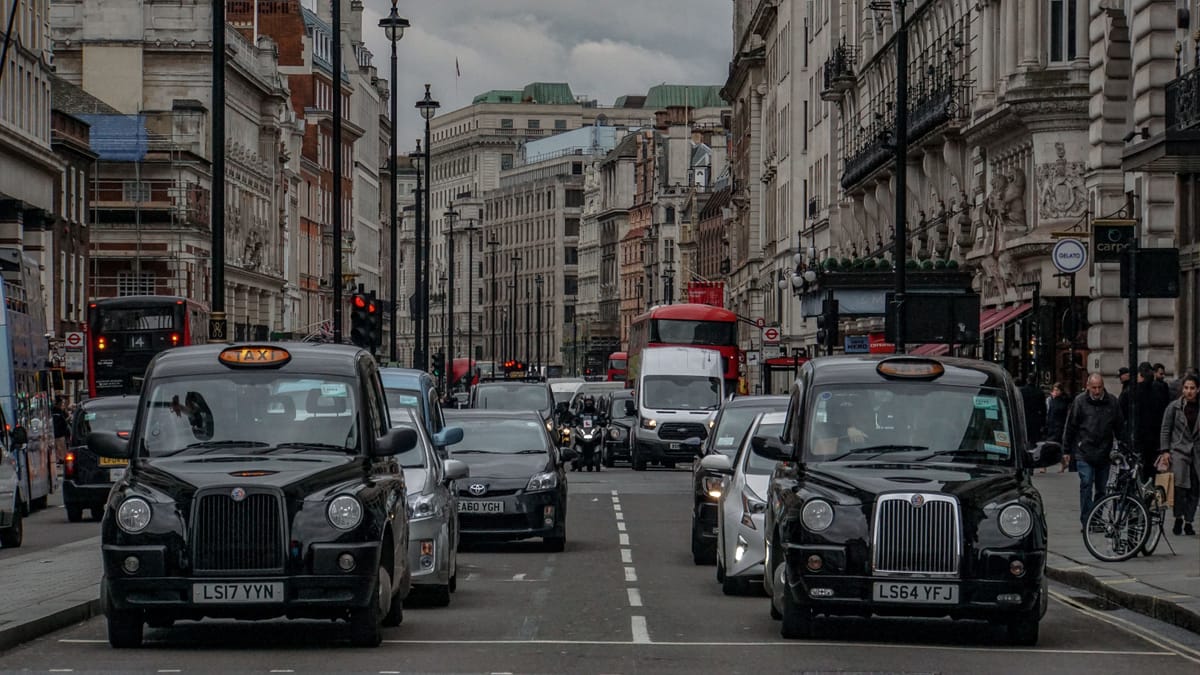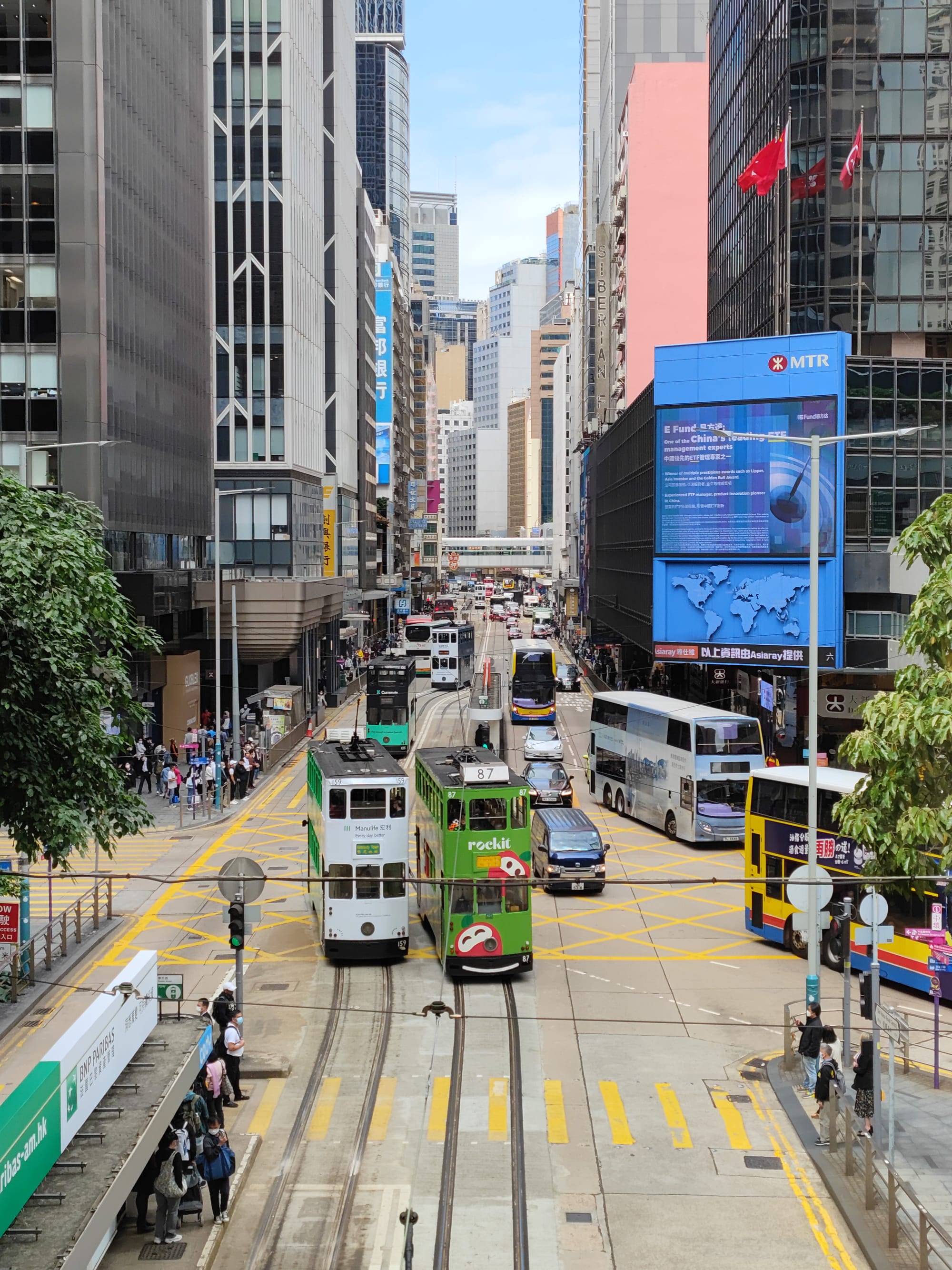The UK Government Should Phase Out Private Vehicle Ownership
As we look to the future, private cars should become a thing of the past

The next time you walk along a busy road in London, have a look at the traffic alongside you – not just for road safety, but to observe the kinds of vehicles that are present. At least in South Kensington, the vast majority of those vehicles are likely to be private cars, which begs the question of just how many greenhouse gases (GHGs) are being pumped into London’s air at any given moment.
I have a personal vendetta against cars, as I get horrible motion sickness, particularly on long drives. I would gladly take a train or bus over a car any day. But that is beside the point – the real issue here is that of climate change, and specifically the GHG emissions that contribute to it.
For someone from Hong Kong, a city that relies heavily on its public transport system, it is incredible that a city as well-established as London does not have efficient and affordable public transport. Understandably, the infrastructure is much older than many comparable Asian cities, but with the endless rail works carried out at all times in London, one would think the government would invest in a full revamp of the underground system. Hong Kong has its fair share of private vehicles, but public transport is reliable and cheap enough that car owners often opt for taking buses and trains instead.

There are many reasons why people might choose not to utilise London’s public transport. First of all, there are the extortionate prices, which put off many students and people from lower income households. This, combined with numerous delays and erratic train timings, makes travelling by private car or foot much more efficient. The weekly train strikes and rail works make the trains and tube unpredictable; a nightmare for commuters who travel at peak times. Many visitors to London from other parts of the UK will drive into the city rather than pay for an expensive train ticket, adding more vehicles to the already congested roads. This heavy traffic makes buses slower than most other forms of transportation, so that although they are the cheapest mode of transport, they are unfavourable for people who actually want to arrive at their destination on time.
Not only are private cars a big issue, but so is the use of private jets, particularly by the wealthiest 1% of the population and by public figures such as government officials and celebrities. The emissions for private aircraft are not significantly higher than those for commercial flights, but the emissions per person are. The same goes for private cars - one bus emits more CO2 than one car, but when comparing a full bus to the equivalent number of private cars the bus emits significantly less.
According to the UK Government’s ‘Transport and Environmental Statistics’ for Autumn 2021, indirect emissions (meaning emissions produced from resource extraction, production, and fuel transport) comprise roughly a quarter of private cars’ emissions. By comparison, indirect emissions only account for about a sixth of total emissions for trains, coaches, and planes (although planes cause other negative environmental effects). This indicates that the manufacture of private vehicles alone already creates a significant level of emissions.
This leads onto the matter of electric cars and how they contribute to GHG emissions. While fully electric cars do not produce any direct emissions, hybrid models do, and both kinds produce significant levels of indirect emissions. These indirect emissions come from a number of different sources; much are from the manufacturing process, as well as importation, waste disposal, and producing the necessary energy to charge the battery. Unless this electricity is sourced purely from renewables, the burning of fossil fuels will contribute further emissions. The manufacture of the rechargeable lithium-ion batteries generally used in these cars is environmentally-damaging too; GHG emissions and water loss occur during the lithium extraction process, and disposal of the batteries creates toxic waste. All this goes to show that even the most environmentally-friendly private vehicles have their drawbacks.
However, electric vehicles are still more energy efficient during operation, especially if the electricity comes from renewable sources, and many countries are introducing electric buses in place of petrol-fuelled ones in an attempt to further reduce the direct emissions produced by public transport.
This would be a feasible solution for the UK if there were not a number of barriers to implementing it. These include the age and costs of public transport’s current infrastructure, the fact that many people still need to own a private vehicle for family or work purposes, and how to appropriately dispose of the old vehicles. There are also the socioeconomic implications of banning private cars, in terms of the rights to sell and own particular products. The motor industry is well-established, and many of its customers are used to living with access to their own car. Privately-owned cars and jets could potentially be repurposed into public vehicles such as taxis and short-haul commercial airlines, but the economic viability of this is another major factor against its implementation.
I believe that the UK Government should at least attempt to start phasing out private cars, or to limit and regulate their ownership. While this would be a slow process, it would be highly beneficial for the future of society and the planet. There are so many alternatives – buses, trains, taxis (or Ubers), trams, bicycles – that could be optimised in order to render private cars obsolete. It would also set an example for other developed countries such as the US, Japan, and Germany, which have varying degrees of public transport efficiency, but all have high levels of private car ownership.
This may sound like a drastic measure, but we are living through the most critical period in humanity’s history, with seemingly little remorse for the impact we are having on the Earth. Should that not warrant a few drastic measures?








